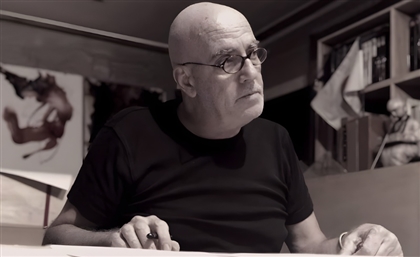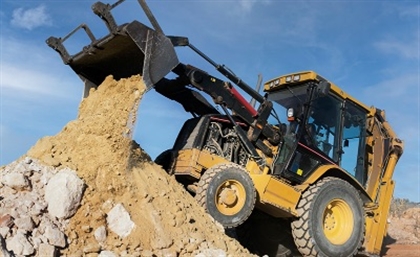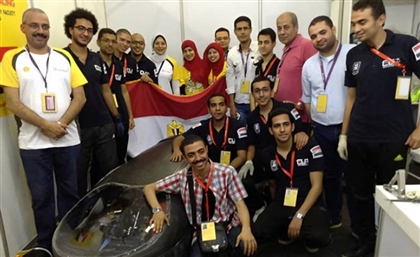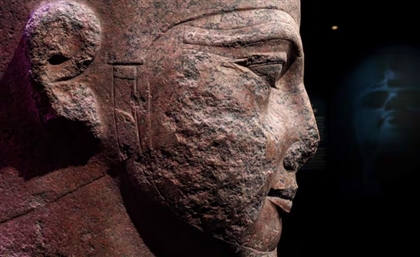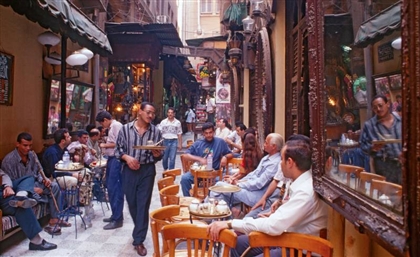In it Together: Cleaning Cairo
In the first of CairoScene reporter Eihab Boraie's social experiments on the streets of Cairo, he asks passing cars to empty out their garbage. Check out how drivers, street vendors and the police reacted...
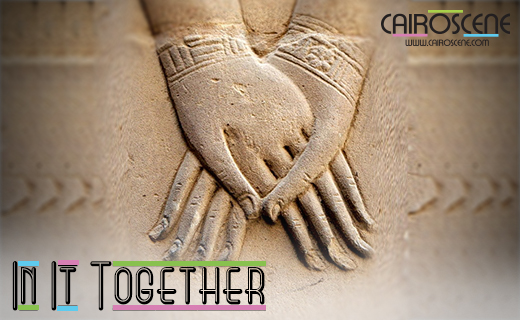
When stuck in endless traffic, gazing out the passenger window, I often wonder if I am as insignificant as a singular grain of sand in the vast deserts of Egypt. It’s easy to feel small in a big city, especially when that city happens to be as huge and bipolar as Cairo.
On my one to three hour daily commute to work, I am driven to the brink of madness by traffic, sadness at the sight of the garbage and depression by the countless poor selling further garbage for next to nothing while cars are stopped in traffic. Egypt is a charitable nation and for those who peddle tissues, steering wheel covers, balloons and prayers, the exchange of these “goods” is merely a symbolic gesture; they can't find work and need your charity to live.
I could never understand how Egyptians of all classes would without a blink of the eye call Egypt the mother of life and yet, at the same time, collectively continue to disrespect her. Throughout the magical ancient land, desired to be seen by all, is simply a state of injustice and filth. Litter is everywhere and no matter how many brooms are given out, it still seems like we are doomed to deal with the crushing mounds of trash that floods highways, streets and neighbourhoods, not to mention the acrid smell of burning garbage.
On my drives, I felt increasingly hopeless until I witnessed something that changed my perspective on life and Egypt’s chance for a better future. Alone on the side of the road, I spotted a street child walking, periodically picking up litter off the street and putting it in a trash bin. At no point of time did this child ask anyone for money and with his simple selfless act, I knew that there was plenty of good in this country. It’s idealistic but I began to think that if we worked together, we could have Cairo cleaned up faster than electing a president.
Inspired to do something – anything –to help clean the streets, I decided to spend two hours of my day in one of Cairo's most notorious squares, El Nahda, close to Cairo University. This square is the site of multiple bombings and student clashes. I figured that if I armed myself with nothing but a garbage bag, a videographer, a Go-Pro camera and a will to clean, then anyone could see how easy and safely one could clean up Cairo. It’s hard to describe the sensation one feels when everyone in a busy square is looking at you. What I thought would be a simple task of becoming a walking, talking garbage bin, proved not to be without its obstacles, as a change is never easy to accept.
There was a sense of electricity that flooded the air as I weaved through traffic like a fast food delivery man without a scooter, collecting garbage that would otherwise end up on the street. By facing the reality that someone has got to clean up Cairo, I found myself met with several praises and prayers from commuters who wished they could join me (but as usual, they were late to something). At the same time, my motives and identity were being questioned and on several occasions both our videographer, Mahy Sherif, and I were met with anger and hostility.
As I was sashaying my way between cars and microbuses collecting garbage, an old woman in a niqab stopped Mahy and tried to force her to leave her turf. I arrived just as she had backed off, conceding her square to us.
By the end of the day, I realised that this experience was less about me getting rid of my guilt, and more to do with conducting a rewarding social experiment. Through observation, I came to three different conclusions, in the form of equations, from the time I spent cleaning the streets:

Time = garbage + money
Egyptians have a high tolerance for change, and if you’re like me, you wouldn’t miss the tissue packets and balloons sold by the side of the road. Why can’t the norm be for those vendors to collect the trash from people’s cars (trash that often gets tossed onto the streets) and donate to those doing their part to clean Om el Donia?
Time = SHOW ME YOUR BATA2A
From traffic cops and steering wheel cover sellers, to secret police and ordinary civilians, every 20 minutes that passed, someone asked me to provide my citizenship card and questioned my motives. Every time I was asked to provide proof, I instead offered a plastic bag and welcomed them to join me. When that didn’t work, I relied on my broken Arabic to breakdown communication and played ignorant as I continued my experiment.
Time = (Praise + Prayers)² – Insults
The overwhelming amount of praises and prayers I received vastly overshadowed the insults and condescending looks for doing something “bee2a” (something trashy and uncouth). As far as I am concerned, there is nothing “bee2a” about caring for your bee2a (the original meaning of this word is ‘environment’). In fact, it’s quite opposite; it’s patriotic to help keep the country clean, and to try to make Egypt a home we can be proud of. Besides, aren’t we In it Together?
- Previous Article 10 Reasons We Love Dogs
- Next Article Nomades Land




